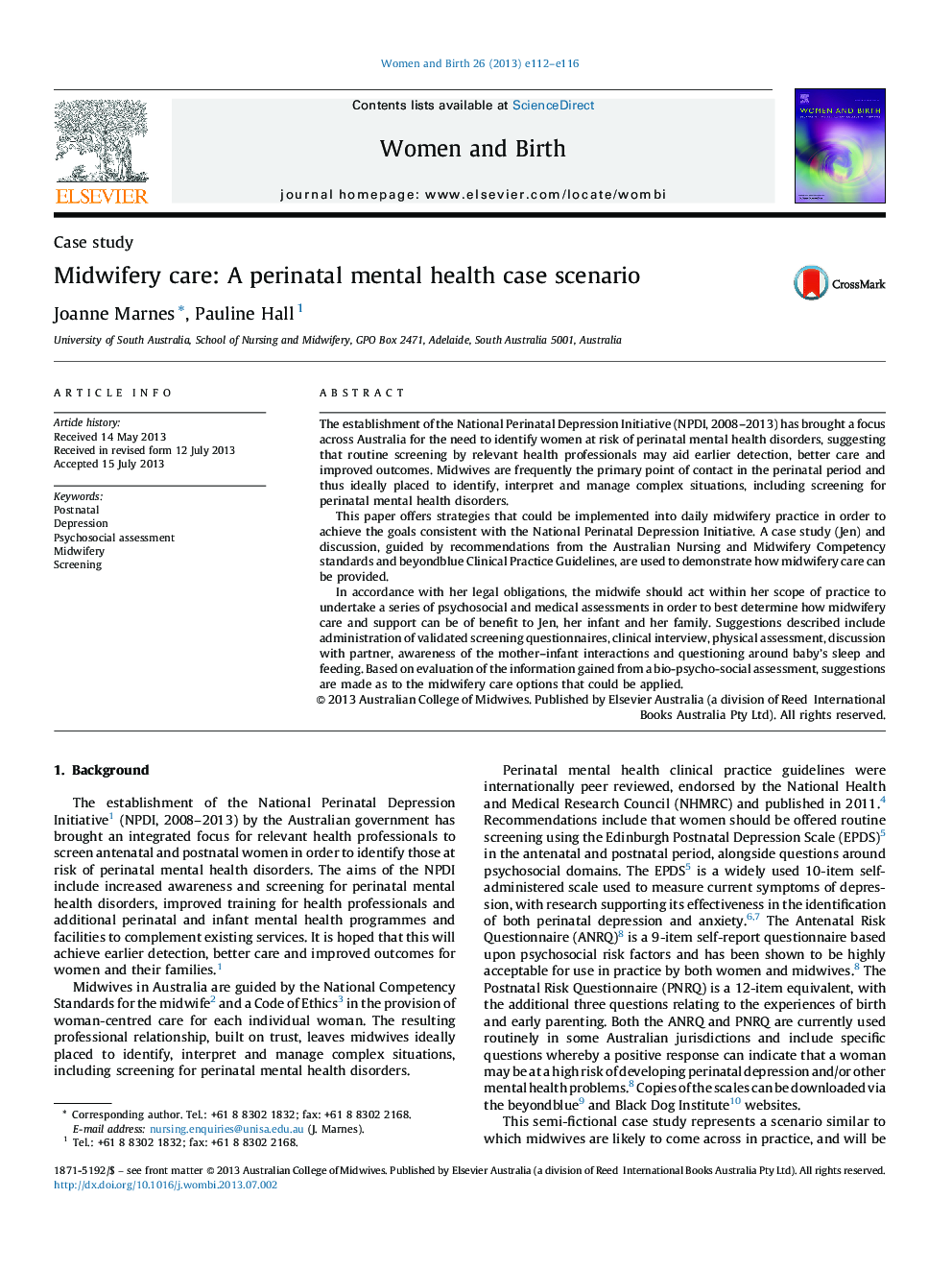| Article ID | Journal | Published Year | Pages | File Type |
|---|---|---|---|---|
| 2636157 | Women and Birth | 2013 | 5 Pages |
The establishment of the National Perinatal Depression Initiative (NPDI, 2008–2013) has brought a focus across Australia for the need to identify women at risk of perinatal mental health disorders, suggesting that routine screening by relevant health professionals may aid earlier detection, better care and improved outcomes. Midwives are frequently the primary point of contact in the perinatal period and thus ideally placed to identify, interpret and manage complex situations, including screening for perinatal mental health disorders.This paper offers strategies that could be implemented into daily midwifery practice in order to achieve the goals consistent with the National Perinatal Depression Initiative. A case study (Jen) and discussion, guided by recommendations from the Australian Nursing and Midwifery Competency standards and beyondblue Clinical Practice Guidelines, are used to demonstrate how midwifery care can be provided.In accordance with her legal obligations, the midwife should act within her scope of practice to undertake a series of psychosocial and medical assessments in order to best determine how midwifery care and support can be of benefit to Jen, her infant and her family. Suggestions described include administration of validated screening questionnaires, clinical interview, physical assessment, discussion with partner, awareness of the mother–infant interactions and questioning around baby's sleep and feeding. Based on evaluation of the information gained from a bio-psycho-social assessment, suggestions are made as to the midwifery care options that could be applied.
